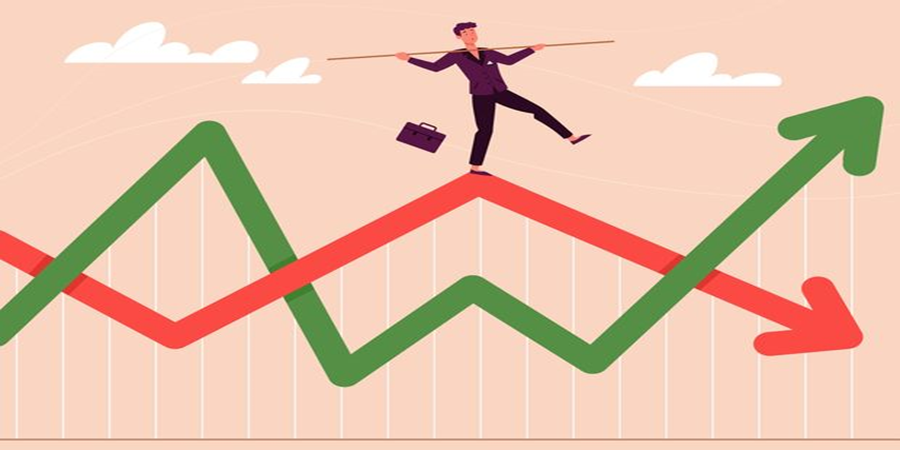Stock trading is one of the most exhausting jobs, especially if you’re a short-term trader. People working in this industry have to make decisions on a daily basis and find “winners” with limited financial data. Not only does this require a great physical and mental commitment, but it also requires a certain level of organization.
Professionals use various systems to manage information for different markets and stocks. Even a small organizational lapse can lead to a real disaster, losing clients millions of dollars.
How Do Stock Traders Use Information?
Quality information is the driving force behind every good financial decision. Without proper data, investors could only speculate about asset prices rarely having the right direction. As such, data analytics and financial software have become vital parts of the stock market process.
Analytics is crucial for determining trends, comparing various metrics over time, and identifying common asset traits. Most importantly, these tools work well both for fundamental and technical analysis. Whether you’re targeting healthcare, agriculture, or telecommunication, you’ll always have a good understanding of what’s happening on the market.
It’s worth noting that, besides stocks, financial software works for just about any asset across different markets. For example, Forex brokers use it when working with American clients to establish the future prices of various currencies. Here’s more info about companies that provide support to US investors.
AI and Modern Financial Software
Financial companies use some of the most advanced computer programs in the world. Given that day trading hinges on the fast exchange of information, this software needs to work in real time and sift through all the Internet noise.
AI, in particular, has become a game-changer for both small and large investors. Artificial intelligence uses historical data to predict future performance. It takes into account a company’s quarterly earnings to calculate how much their assets should be worth.
The best thing about software is that it’s completely devoid of speculation. Even if a stock price changes in an unfavorable direction, it should eventually get back to its predicted position. Unfortunately, if we presume that everyone’s using this technology, this would prevent investors from making any profit as everyone would move in the same direction.
How Do Traders Organize Data?
Given that most modern trading is done through online platforms and with the assistance of various software, all information is stored directly within these programs. The data is updated in real time, which makes traders’ jobs that much easier.
Nevertheless, these experts also use other files and folders to categorize data. In most cases, an Excel sheet will do a good job as an advanced tool. Here, a person can store various numbers pertaining to stocks they’re tracking.
Some technical traders use folders to store charts. It’s worth noting that there isn’t a secret method for organizing information; each trader will create a system that makes sense to them. For example, they can create folders for a particular asset or for monitoring fluctuations in different markets.
Common Uses For Stock Information
Traders utilize data for just about everything they do on a daily basis. That being said, these are the most common use cases:
-
Market Insights
With the right software, experts can mix historical data and real-time market fluctuations to detect relevant trends. This type of information works for everyone but is vital for intraday traders. The data is filtered through specific performance criteria so that a trader might find an asset worth investing in.
-
Algorithmic Trades
Modern stock trading is becoming more and more automated, removing financial consultants from the picture. People can set buying or selling criteria on their phones, and AI would find ideal opportunities based on their requirements.
For all this to work, software needs access to a large quantity of relevant information. These programs are able to accrue data from various native sources which, after being processed, can be used for valuable insights, whether these insights are used by a computer or a human.
-
Fraudulent Actions
Data analytics works for more than just decision-making. Regulators use this information to detect abnormalities during trading and potentially exploitative behavior. By configuring algorithms, experts working in the field are able to track risk scores during major transactions, flagging anything that might seem out of order.
-
Strategy Optimization
Timely information is commonly used to predict the growth (or fall) of various assets. Based on predicted revenues and assigned risk scores, investors can determine which stocks fit their investment strategy. They’re able to combine different assets to create a versatile yet profitable portfolio for themselves and their clients.
Conclusion
The entire stock game revolves around the smart implementation of data. Modern software, backed up by artificial intelligence and machine learning, can accumulate information from various sources, allowing you to create an actionable strategy for your clients. For all this to work, traders also have to properly organize data for future processing.




